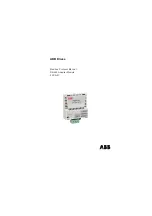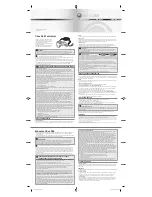
2 - 21 2 - 21
MELSEC-Q
2 USING THE E-MAIL FUNCTION
1 In the mail information storage area, the following information related to the
receive mail is stored in the corresponding bits.
Mail information storage area
b15
b14 to b5
b4
b3
b2
b1
b0
address 2682
H
(9858)
7)
6)
5)
4)
3)
2)
1)
1) Indicates whether the information (maximum of 128 words) in the From head
address storage area is valid (1) or invalid (0).
2) Indicates whether the information (maximum of 4 words) in the Date head
address storage area is valid (1) or invalid (0).
3) Indicates whether the information (maximum of 64 words) in the Subject
head address storage area is valid (1) or invalid (0).
4) Indicates whether or not there is an attached file Yes (1) or No (0).
For "Yes", it indicates that the information (maximum of 12 words) stored at
addresses starting from the Attached file name head address is valid.
5) Indicates whether or not there is information in the Message ID head address
storage area Yes (1) or No (0).
6) Indicates the system information.
7) Indicates whether the receive mail that has not been read to the PLC CPU is
stored in the Ethernet module Yes (1) or No (0).
2 The value stored in each head address shown in the table indicates the offset
address (0
H
to n
H
) from the head address of the buffer memory in which the
applicable address is stored (address: 268B
H
to 3FFF
H
).
POINT
(1) The Ethernet module checks whether or not there are any incoming mails
addressed to the local station in the mail server at the time interval set in the
inquiry interval in the "Network Parameter Ethernet e-mail setting" screen of
GX Developer.
If there are incoming mails addressed to the local station, the reception
information is stored in the following areas of the buffer memory.
• Bit 15 is turned on in the mail information storage area (see 1 above).
• The number of receive mails on the mail server is stored in the receive mail
count storage area (address 5870
H
).
When more than one receive mails are stored on the mail server, the
receive mail information can be stored in the buffer memory in the same
way as described above by designating "Inquire" in the MRECV
instruction's control data item.
Receive mails can successively be read based on this stored information.
(2) Read receive mails stored on the mail server using the MRECV instruction.
Receive mails will accumulate on the mail server if the MRECV instruction is
not executed.
(3) After executing the MRECV instruction, e-mails that have been read are
deleted from the mail server.
(Receive mails read will not remain on the mail server.)
(4) If the Ethernet module has received e-mail longer than the reception data
length specified with the MRECV instruction, it stores the data equivalent to
the reception data length and ignores the remaining data.
















































